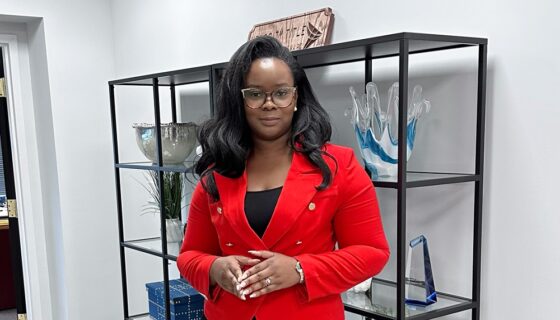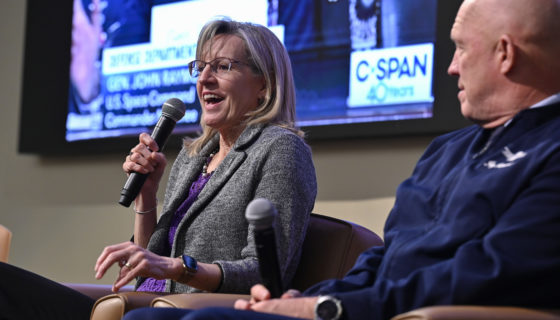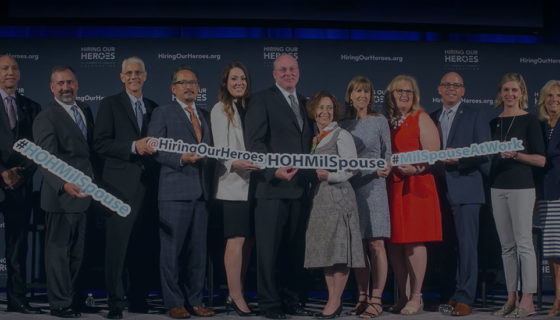Resume Feedback, Networking Guidance Continue to Ring True Long After Completing Corporate Fellowship Program
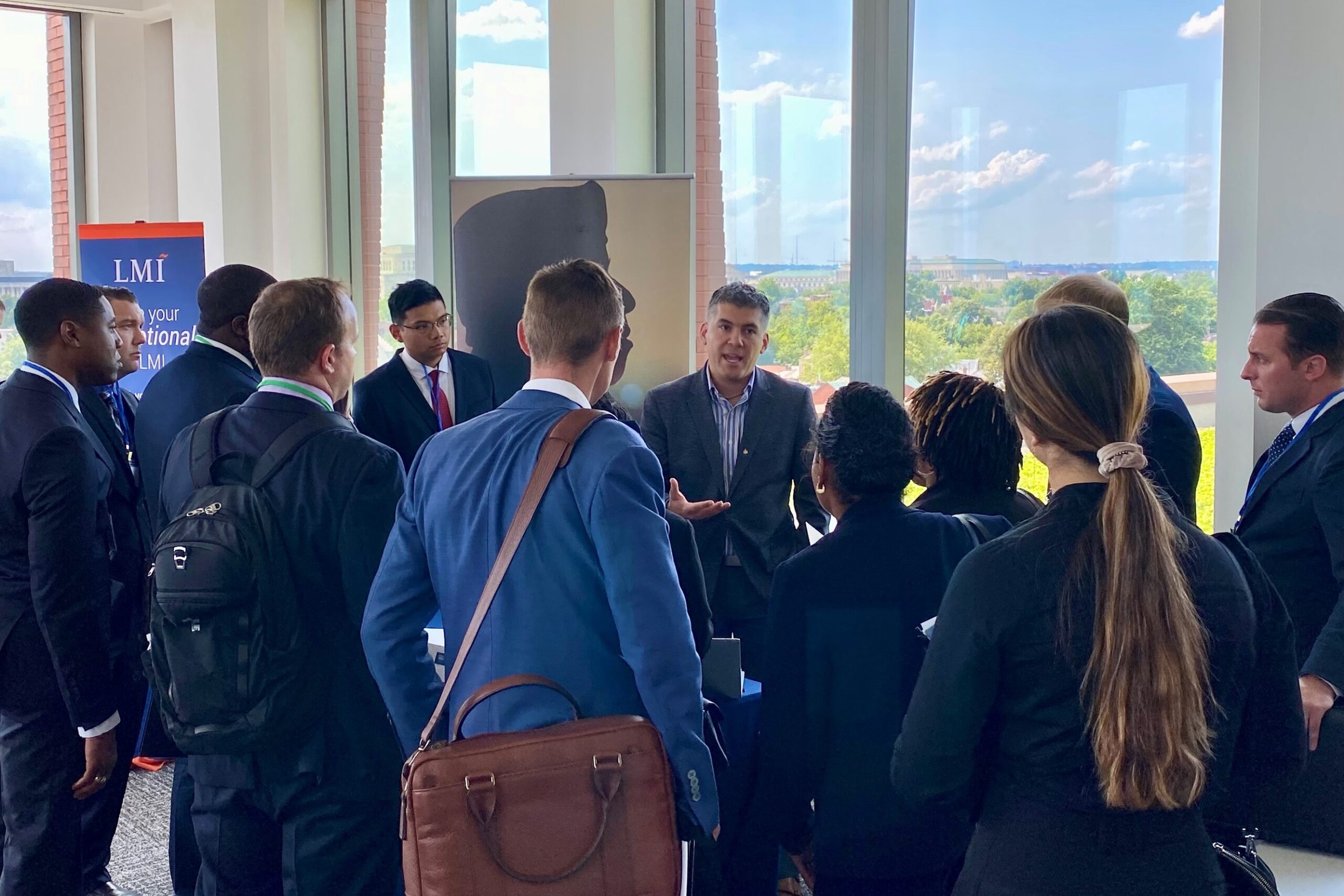
Transitioning service members get more than a job through the Hiring Our Heroes’ Corporate Fellowship Program. The program’s curriculum sets veterans up for long-term success, according to one U.S. Marine Corps veteran.
“I wouldn’t be where I am today without the Corporate Fellowship Program,” said Chris Cockrell, Procurement Engineering Manager at Lockheed Martin. “After a few promotions and taking new internal opportunities, I manage the team I joined as an individual contributor five years ago.”
Related: Fellowship Helps 30-Year Army Veteran to ‘Test the Waters Without the Risk’ at Morgan Stanley
The Hiring Our Heroes’ Corporate Fellowship Program (CFP) is a U.S. Department of Defense-authorized SkillBridge program for transitioning service members during their final months on active duty. Participating fellows receive management training and hands-on experience in the civilian workforce to prepare them for a smooth transition to civilian careers.
A total of 7,894 fellows have completed CFP since its launch in 2015. The program has grown exponentially with participants from all service branches, including Space Force, Coast Guard and National Guard.
Currently, the Hiring Our Heroes’ program boosts an 85% job offer rate and the average starting salary is $105,000.
Before the Fellowship
The program’s success caught Cockrell’s attention during a presentation at Marine Corps Base Quantico in 2016.
“The thing that stuck out to me was the number of Fortune 500 companies participating and the job placement rate,” Cockrell recalled.
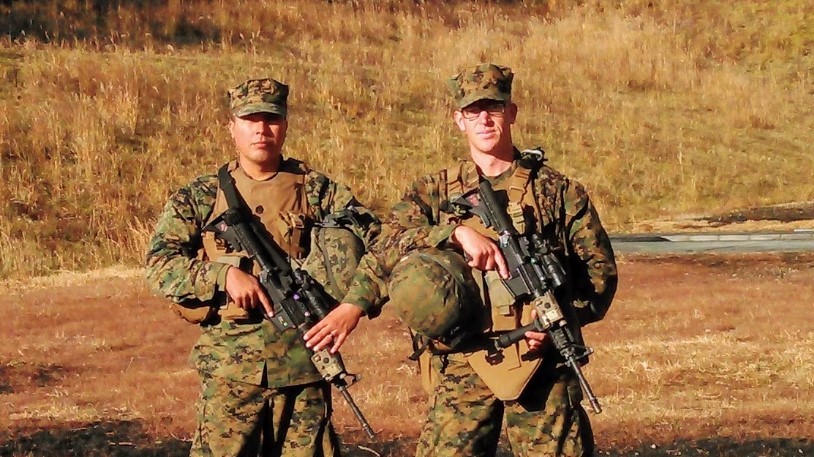
Not long after completing a fellowship and transitioning out of the Marine Corps, Cockrell joined Lockheed Martin (LM). He’s been working there ever since. In his time with LM, Cockrell earned a Master of Business Administration degree and advanced through more challenging roles within the organization.
“When I joined Lockheed Martin, the senior leadership took me under their wing and taught me a lot,” Cockrell said.
But he wouldn’t have had this opportunity at LM without CFP.
“I would not have been viewed competitively or got my first job without Hiring Our Heroes,” Cockrell said.
CFP Key Takeaway: Research the Company
The Corporate Fellowship Program curriculum exposes participants to various companies and industries. The information helps the veteran “know what you’re getting into” before your first day on the job, Cockrell pointed out.
Cockrell is quick to say, “the stars aligned” when he was introduced to Lockheed Martin through the Corporate Fellowship Program. But his decision to seek employment at LM wasn’t impulsive.
“Lockheed Martin was on my list for a while. I knew they were a good company,” he said.
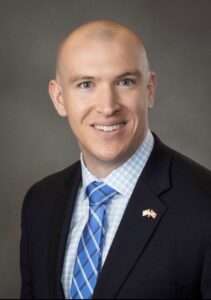
When asked why he has stayed with LM since 2017, he said it’s because of “the depth and breadth of the services and products we provide.”
“I’ve chosen to stay at Lockheed Martin because of the number of opportunities available for career and professional development. Regardless of your background, this company has a career path for anyone ranging from data analytics to manufacturing,” Cockrell said.
Also, he continues to serve the military in a new capacity.
“I have been able to work with a customer who wears the same uniform I used to wear. That’s pretty special,” he added.
Cockrell recommends transitioning service members focus on the company, not a role, because a civilian employer’s promotion curve may be steeper and advance quicker than a promotional ladder within the military ranks.
“The cream rises to the top, right? At any organization if you perform well, learn your job and advocate for yourself, you’re going to be taken care of. I find that to be the case at Lockheed Martin,” Cockrell said.
CFP Key Takeaway: Never Stop Networking
When Cockrell prepared to separate from the military, he didn’t understand the benefits of networking.
“Meeting people, and keeping in contact with them, is how the ‘civilian’ world works. If you don’t have those relationships, you’re not going to get your foot in the door,” Cockrell said.
And networking doesn’t end with your job offer.
Cockrell’s salary has nearly doubled, and he’s transitioned into a management role since graduating from CFP.
“It’s all credited to building and maintaining strong professional relationships,” he said.
CFP Key Takeaway: Mentor Today’s Veterans Through Their Transitions
In his spare time, Cockrell mentors Marines preparing for their transitions. He estimates he has helped around 15 veterans in the last five years.
“As veterans, we sometimes do ourselves a disservice by not aggressively trying to help that service member that’s going to get out of the military soon. Maybe it’s because we don’t know how to help,” Cockrell said. “I feel fortunate to be part of the Corporate Fellowship Program, and I try to pay it forward as much as I can.”

